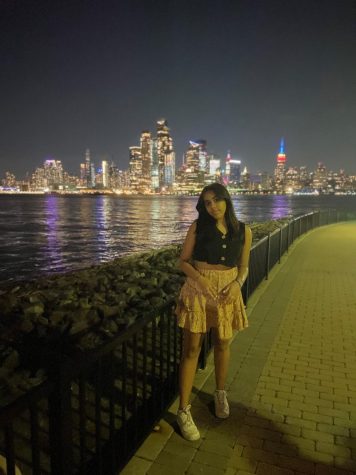Diwali, the Festival of Lights
November 5, 2021
Diwali is a holiday celebrated by millions of people across the globe. It originated in India, specifically by the Hindus. The root of Diwali comes from the early Sanskrit word, dipavali, which means a row of lights. Diwali is a celebration of light over darkness and good over evil. It is celebrated in different ways through different religions but mainly it is celebrated by Hindus, Sikhs, and Jain Dispora. It is typically on the 15th day of the lunar month, Kartik, according to the Hindu calendar, which usually ends up being in autumn. This year it falls on November 4th. In comparison to American holidays, it is most similar to New Years. Some people celebrate 5 days of Diwali, starting with Dhanteras and ending with Bhai Dooj. However, this varies upon household. Some only celebrate the 3rd and main day called the Lakshmi Puja. Regardless of how they celebrate, all over the world, Indians light up their homes in every way possible with candles called diyas (small earthenware lamps filled with oil) and decorations. Traditionally, in India, diyas are lit and placed in rows and set to drift along rivers and streams. They decorate their homes with rangoli, which are intricate and beautiful designs created by colored sand, flower petals, or rice. The windows are open and homes are illuminated with light and prosperity. It’s a day of love and cherishing family and friends. People celebrate by making sure their houses are clean, wearing new festive clothes, lighting up their homes, exchanging gifts, eating mithai (sweets) & cultural dishes, and getting together with family. They usually have a puja, which is a religious ritual that varies by their religion for Lakshmi, the goddess of wealth and prosperity, and/or honor the 6th Sikh guru. Oftentimes people also light sparklers and do fireworks at night. It’s overall a very festive and joyful day to cherish light over darkness and new beginnings.
Sources:
https://www.britannica.com/topic/Diwali-Hindu-festival


